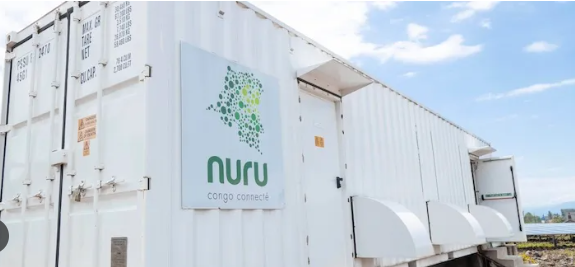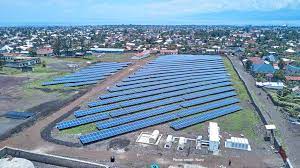Nuru, a solar energy firm located in the Democratic Republic of the Congo, aspires to supply constant power to the country’s five million residents. Its Series B funding of $40 million falls well short of the $300 million needed to reach this objective.
To develop its renewable energy infrastructure, the Democratic Republic of the Congo-based business Nuru has secured $40 million in Series B equity capital.
Investors that lead the round include the International Finance Corporation, the Global Energy Alliance for People and Planet, the Renewable Energy Performance Platform, Proparco, E3 Capital, Voltalia, the Schmidt Family Foundation, the GAIA Impact Fund, and the Joseph Family Foundation.
An additional $28 million in project finance is expected to be closed by the end of July, in addition to the IFC’s equity participation and funding from the Finland-IFC Blended Finance for Climate Programme. For both the Series B round and the related project financing, Nuru relied only on AltRaise as its financial adviser.
The funding will be utilized to construct mini-grids in three different locations in eastern DRC: Goma, Kindu, and Bunia, which will be the biggest. The combined capacity of solar electricity and batteries will be 13.7 megawatts. Nuru, which means “light” in Swahili, has mini-grids up and running in four additional cities in eastern DRC.
Read also: Yellow Africa secures $14 million for Solar energy solutions in Africa
Closing the Series B is a significant milestone in Nuru’s journey
The Democratic Republic of the Congo (DRC) is home to an estimated 100 million people, yet only around 20 percent of them have reliable access to electricity. In eastern DRC, many people do not have access to electricity. Since there is little to no electricity in the area, the mini-grids provide a chance to utilize renewable energy and avoid the usage of fossil fuels for power production.
The goal of Nuru’s utility-scale solar mini-grids is to supply constant, clean power to the communities in which they are deployed. This will aid in the much-needed improvement of climate resilience and sustainable development.
We’re excited to work with such a creative group of investors who share our mission of improving the lives of five million people in the DRC by increasing their access to electricity. Jonathan Shaw, Nuru’s founder, said after the round closed, “Closing the Series B is a significant milestone in Nuru’s journey, but it also demonstrates the viability of the metro grid model in the distributed energy sector in Africa.” “Nuru expresses deep gratitude to the investment group for backing the company and believing in its mission from the start. Together, we will continue to illuminate lives, drive economic growth, and empower communities across the DRC.”
Series A funding round for Nuru totalled $3.8 million
Back in March, Nuru’s Series B equity fundraising was bolstered by early investments from REPP, Proparco, and E3 Capital. Each of the three investors in the convertible note round invested $500,000.
The Series A funding round for Nuru totalled $3.8 million and was headed by E3 Capital (formerly Energy Access Ventures) and EDFI ElectriFI in 2018. The investment was instrumental in establishing Nuru’s mini-grid portfolio in the cities of Goma, Beni, Tadu, and Faradje, all of which are now live.
Later this year, according to Bloomberg, the company plans to begin raising $90.0 million in a Series C investment. This comes as the firm pushes for a $300 million funding goal by September 24, 2024, in order to reach its goal of providing service to five million people in the DRC.

